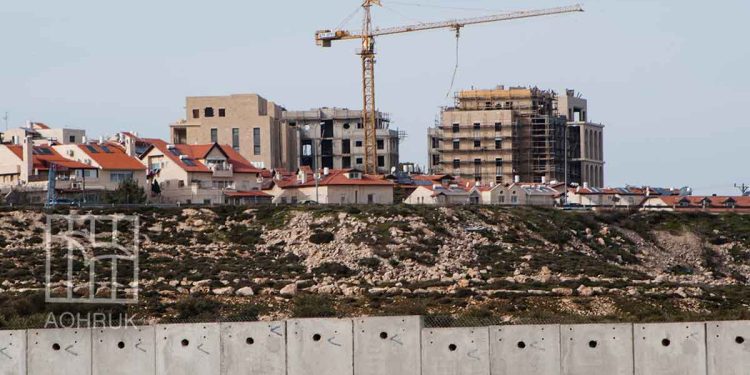In one of the largest settlement expansion projects in recent years, the Israeli occupation has approved the construction of 1,300 new settlement units south of the occupied city of Jerusalem, as part of a massive development plan in what is known as the “Gush Etzion” bloc.
The decision came just days after statements by U.S. President Donald Trump, who sought to reassure journalists that “the Israeli occupation will do nothing in the West Bank.” However, the reality on the ground suggests the exact opposite, as the pace of construction and land confiscation accelerates at an unprecedented rate amid international silence and political leniency that fuels the creeping annexation policy.
The new plan includes, in addition to residential units, schools, public buildings, parks, and large commercial zones, targeting the “Russian Hill” area south of the Alon Shvut settlement, an area built on Palestinian land confiscated decades ago. According to the settlement council, this is the largest project in Gush Etzion’s history in terms of area and number of units.
Behind this so-called urban expansion lies an ongoing crime under international law. Article 49 of the Fourth Geneva Convention prohibits the occupying power from transferring its civilian population into the territory it occupies, making all settlement activity a blatant violation of international humanitarian law and a war crime under the Rome Statute of the International Criminal Court.
This move cannot be viewed in isolation from the broader plan to effectively annex the West Bank through gradual expansion of settlements and their integration via networks of roads, tunnels, and military and civilian bridges, isolating Palestinian communities and undermining the territorial integrity of a future Palestinian state.
Such policies represent a fully-fledged apartheid system, creating two separate legal and geographical realities on the same land: one for settlers, enjoying full civil privileges, and another for Palestinians, living under military domination.
Ironically, the Israeli occupation continues this path despite the international consensus on the illegality of settlements and dozens of UN Security Council and General Assembly resolutions calling for an immediate halt. Chief among these is Resolution 2334 of 2016, which reaffirmed that all settlement activity is “without any legal validity” and constitutes a “flagrant violation” of international law.
Therefore, this decision is not merely an administrative act of construction approval, but a new blow to the international legal system and a direct challenge to the principles of justice and human rights.
While Palestinians are denied the right to build on their own land or renovate their homes without rarely granted permits, settlements receive de facto legitimacy and financial and political incentives, a scene that exposes the stark legal double standards imposed by the occupation, which a defenceless population continues to pay for day after day, amid international silence that effectively translates into tacit approval of the crime.




























